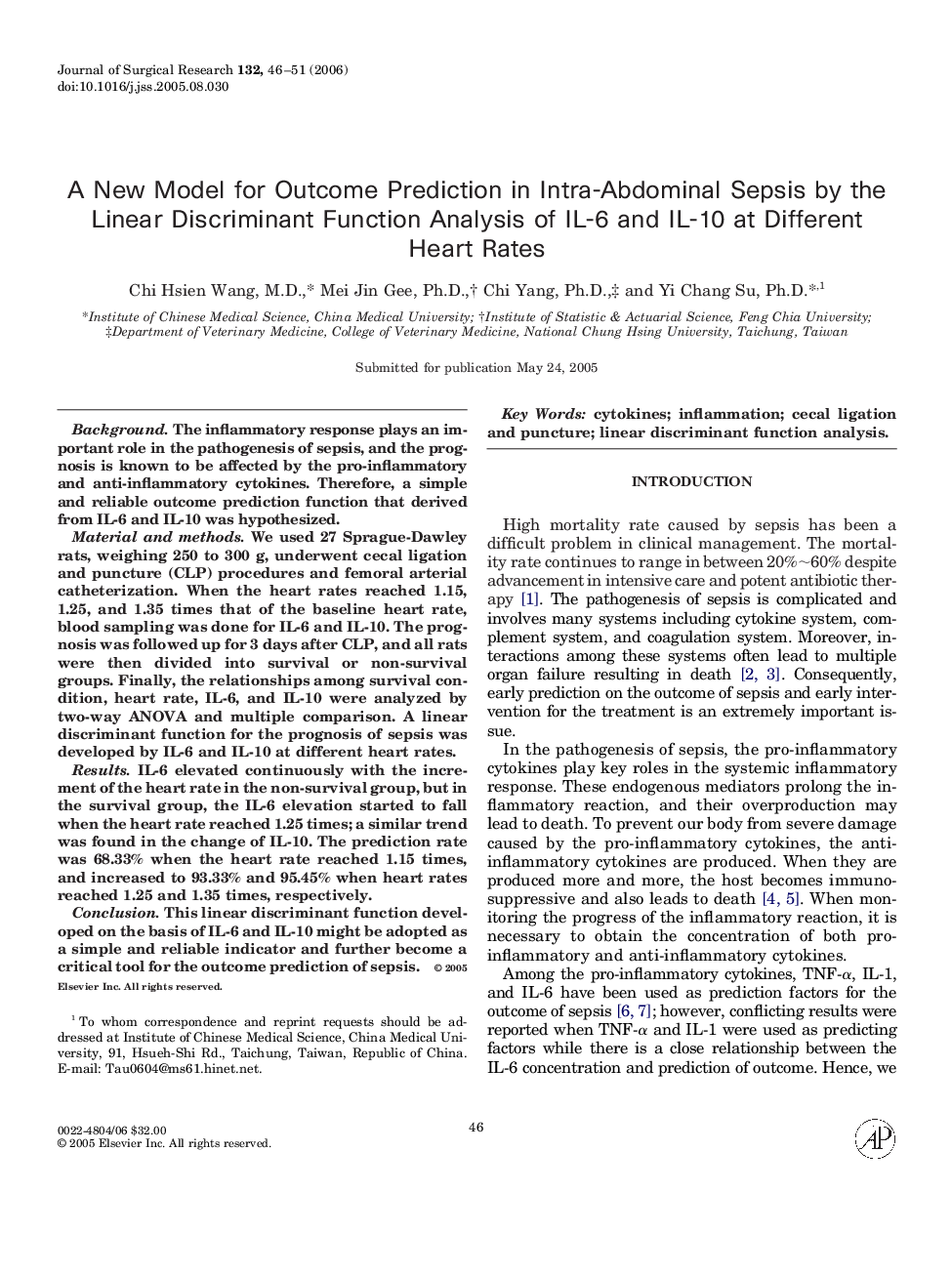| کد مقاله | کد نشریه | سال انتشار | مقاله انگلیسی | نسخه تمام متن |
|---|---|---|---|---|
| 4305174 | 1288527 | 2006 | 6 صفحه PDF | دانلود رایگان |

BackgroundThe inflammatory response plays an important role in the pathogenesis of sepsis, and the prognosis is known to be affected by the pro-inflammatory and anti-inflammatory cytokines. Therefore, a simple and reliable outcome prediction function that derived from IL-6 and IL-10 was hypothesized.Material and methodsWe used 27 Sprague-Dawley rats, weighing 250 to 300 g, underwent cecal ligation and puncture (CLP) procedures and femoral arterial catheterization. When the heart rates reached 1.15, 1.25, and 1.35 times that of the baseline heart rate, blood sampling was done for IL-6 and IL-10. The prognosis was followed up for 3 days after CLP, and all rats were then divided into survival or non-survival groups. Finally, the relationships among survival condition, heart rate, IL-6, and IL-10 were analyzed by two-way ANOVA and multiple comparison. A linear discriminant function for the prognosis of sepsis was developed by IL-6 and IL-10 at different heart rates.ResultsIL-6 elevated continuously with the increment of the heart rate in the non-survival group, but in the survival group, the IL-6 elevation started to fall when the heart rate reached 1.25 times; a similar trend was found in the change of IL-10. The prediction rate was 68.33% when the heart rate reached 1.15 times, and increased to 93.33% and 95.45% when heart rates reached 1.25 and 1.35 times, respectively.ConclusionThis linear discriminant function developed on the basis of IL-6 and IL-10 might be adopted as a simple and reliable indicator and further become a critical tool for the outcome prediction of sepsis.
Journal: Journal of Surgical Research - Volume 132, Issue 1, May 2006, Pages 46–51